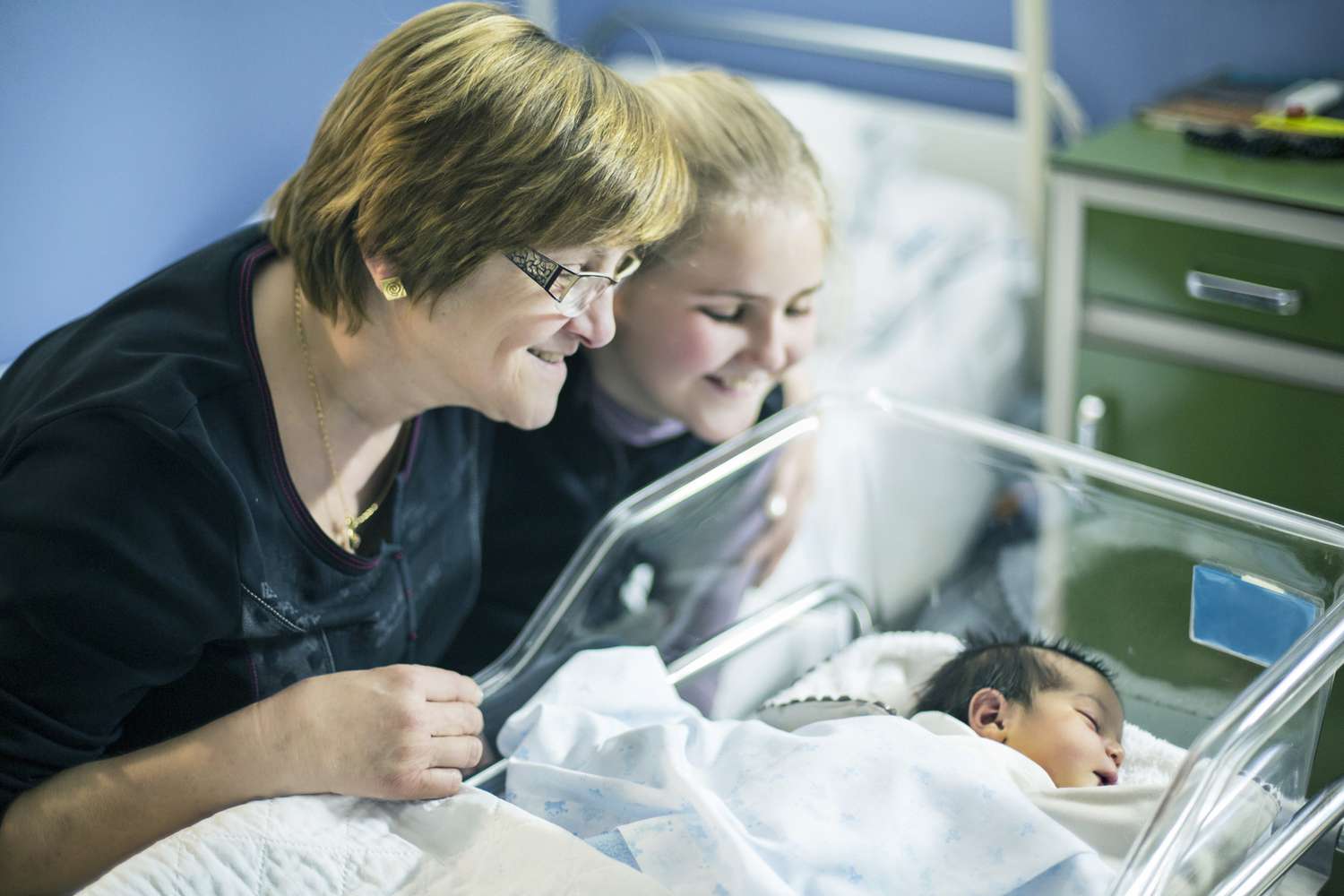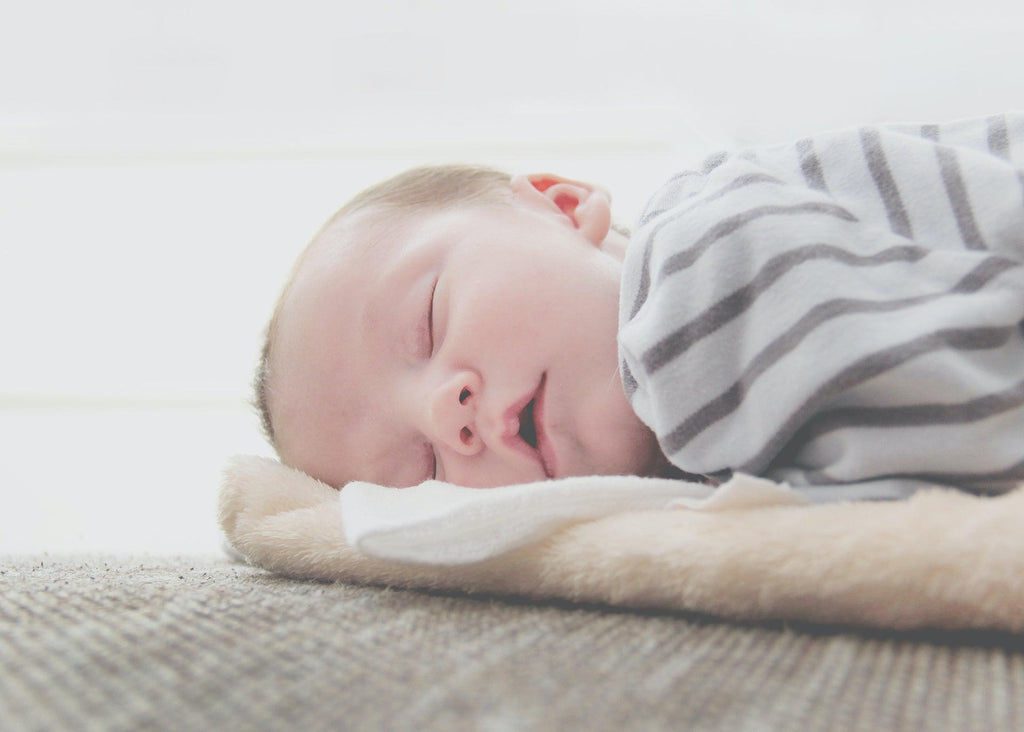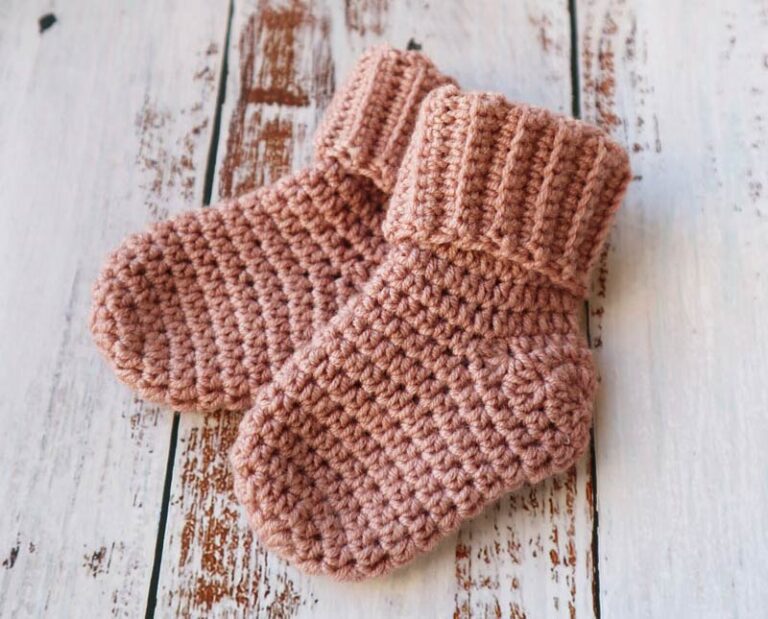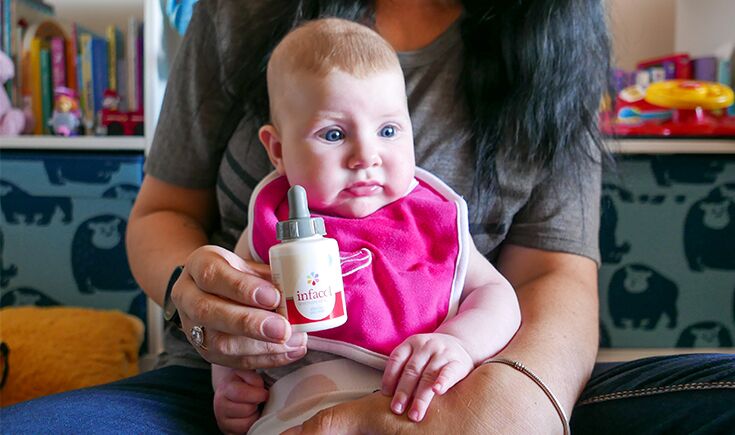How Soon Should Grandparents Visit New Baby? The Ultimate Guide
Grandparents should wait two to three months before visiting a new baby to allow the baby’s immune system to strengthen. During this time, it is important to limit the number of visitors to reduce the risk of infections.
The baby’s health and safety should be the top priority when deciding when grandparents should visit. Welcoming a new baby into the family is an exciting and joyous occasion. As loved ones eagerly await the arrival of the newest member, one question that often arises is when grandparents should visit the new baby.
While grandparents are undoubtedly excited to meet their grandchild, it is crucial to consider the baby’s health and well-being. We will explore the ideal timing for grandparents to visit a new baby, taking into account the baby’s developing immune system and the precautions to be taken. By following these guidelines, families can ensure a safe and enjoyable introduction between grandparents and the new addition to the family. So, let’s dive in and find out how soon grandparents should visit a new baby.
When Is The Right Time For Grandparents To Visit A Newborn?
One of the most exciting moments in life is welcoming a newborn into the world. As joyous as this occasion is, it is also important to consider when is the appropriate time for grandparents to visit the new baby. Timing is crucial, as it ensures both the baby’s well-being and the health of the grandparents. In this article, we will explore the factors that should be considered before planning a visit, including the baby’s immune system development, the health and well-being of the grandparents, as well as travel restrictions and safety concerns during COVID-19.
Factors To Consider Before Planning A Visit
Before grandparents rush to meet their new grandchild, certain factors need to be taken into account. These factors will help determine the appropriate time for a visit and ensure the baby’s safety and well-being. Some considerations include:
- Baby’s immune system development: In the early months of a baby’s life, their immune system is still developing. It is crucial to provide a safe environment free from potential infections. Experts suggest waiting two to three months before planning visits with extended family and friends to limit the number of visitors and reduce the risk of the baby contracting illnesses.
- Health and well-being of the grandparents: Grandparents play a vital role in the lives of their grandchildren, but their own health can impact the safety of the baby. It is essential for grandparents to ensure they are in good health, have received necessary vaccinations, and are free from any contagious illnesses before visiting the newborn.
- Travel restrictions and safety concerns during COVID-19: In light of the ongoing COVID-19 pandemic, travel restrictions and safety concerns must be taken into consideration. It is advised to adhere to government guidelines and regulations regarding travel and visitation to protect both the baby and grandparents.
Baby’s Immune System Development
The baby’s immune system is a crucial factor to consider when determining the right time for grandparents to visit. During the first few months of life, a baby’s immune system is still maturing, making them more vulnerable to illnesses and infections. Waiting until the baby is two to three months old gives their immune system a chance to strengthen, reducing the risk of infections that could be transmitted by visitors. By delaying visits, grandparents can ensure a safer environment for the newborn and minimize potential health risks.
Health And Well-being Of The Grandparents
While the joy of meeting a new grandchild may be overwhelming, it is essential for grandparents to prioritize their own health and well-being. Before planning a visit, grandparents should ensure they are in good health, up to date with their vaccinations, and free from any contagious illnesses. Regular check-ups and consultations with healthcare professionals can provide peace of mind and help ensure a safe interaction between grandparents and the newborn.
Travel Restrictions And Safety Concerns During Covid-19
During the COVID-19 pandemic, travel restrictions and safety concerns have become important factors to consider when planning any type of visit. It is crucial for grandparents and parents to stay informed about the latest guidelines and regulations regarding travel and visitation. Adhering to these guidelines will help protect the vulnerable newborn and reduce the risk of exposure to the virus. Virtual visits and video calls can be a temporary alternative until it is safe for physical visits to take place.
Establishing Boundaries For Grandparent Visits
The ideal timing for grandparents to visit a new baby varies, but it is generally recommended to wait until the baby’s immune system is stronger, which might be around two to three months after birth. This allows the baby to establish a stronger immune system before being exposed to too many visitors.
Communicating Expectations And Preferences
When it comes to establishing boundaries for grandparent visits, one of the most important aspects is to communicate your expectations and preferences clearly. This ensures that everyone involved understands the guidelines and can respect them. Have an open and honest conversation with the grandparents, discussing important factors such as visitation frequency, timing, and any specific rules you would like them to follow.
Setting Limitations On The Duration Of The Visit
Another aspect to consider when establishing boundaries is setting limitations on the duration of the grandparent’s visit. While grandparents are excited to bond with the new baby, it is essential to recognize the need for rest and privacy during the early days after childbirth. Discuss with the grandparents a suitable duration for their visit, whether it’s a few hours, a day, or a specified number of days.
Discussing Vaccination Requirements
In the current times, prioritizing the health and safety of the newborn is of utmost importance. As such, it is crucial to discuss vaccination requirements with the grandparents before their visit. Ensure that they are up to date on their vaccinations, especially those that protect against diseases commonly transmitted to infants. This conversation will help establish a hygienic environment for the baby, reducing the risk of illness.
Addressing Concerns About Unsolicited Advice
One common concern when it comes to grandparent visits is the possibility of unsolicited advice. While grandparents have valuable experience to offer, it is essential to address any concerns you may have. Clearly communicate your preference regarding advice, emphasizing that you will reach out if you require assistance. By having this conversation, you can create a supportive environment that respects both the expertise of the grandparents and the autonomy of the new parents.
Creating A Safe Environment For Grandparent Visits
Newborn babies are delicate and their well-being is of utmost importance to parents and grandparents alike. When grandparents visit a new baby, it is essential to ensure that the environment is safe and suitable for the little one. This article explores the necessary steps to create a safe space, focusing on baby-proofing the living space, removing potential hazards, ensuring sanitation and cleanliness, and setting up a comfortable and quiet space for the baby.
Baby-proofing The Living Space
Baby-proofing the living space is crucial to minimize potential accidents and ensure a safe environment for the new baby. Here are some baby-proofing measures that can be taken:
- Install safety gates at the top and bottom of stairs to prevent falls.
- Cover electrical outlets with safety plugs or outlet covers.
- Secure furniture with anchor straps to prevent tipping.
- Ensure that cords from blinds or curtains are out of reach.
- Remove small objects or choking hazards from low surfaces.
Removing Potential Hazards
Removing potential hazards from the living space is essential for the baby’s safety. Here are some steps to consider:
- Clear away clutter and ensure that pathways are clear.
- Keep cleaning supplies, medications, and other toxic substances out of reach.
- Store sharp objects, such as knives or scissors, in locked cabinets.
- Avoid using heavy blankets or pillows that can pose suffocation risks.
- Ensure that the baby’s sleeping area is free from loose bedding or crib bumpers.
Ensuring Sanitation And Cleanliness
Maintaining cleanliness and hygiene is essential for the baby’s health. Here are some hygiene practices to follow:
- Ensure that grandparents wash their hands with soap and water before interacting with the baby.
- Regularly clean and sanitize commonly touched surfaces, such as doorknobs and light switches.
- Keep the baby’s toys and pacifiers clean by washing them regularly.
- Discourage anyone with signs of illness from visiting the baby to prevent the spread of germs.
Setting Up A Comfortable And Quiet Space For The Baby
A comfortable and quiet space is essential for the baby’s well-being and relaxation. Here are some suggestions:
- Create a peaceful atmosphere by dimming the lights and minimizing noise.
- Ensure that the temperature in the room is comfortable for the baby.
- Provide a cozy and safe space for the baby to rest, such as a crib or bassinet.
- Have essential items, such as diapers, wipes, and burp cloths, easily accessible.
- Ensure that the baby’s feeding area is clean, comfortable, and free from distractions.
By taking these measures to create a safe and comfortable environment, grandparents can enjoy their visits with the new baby while ensuring the baby’s well-being is prioritized.
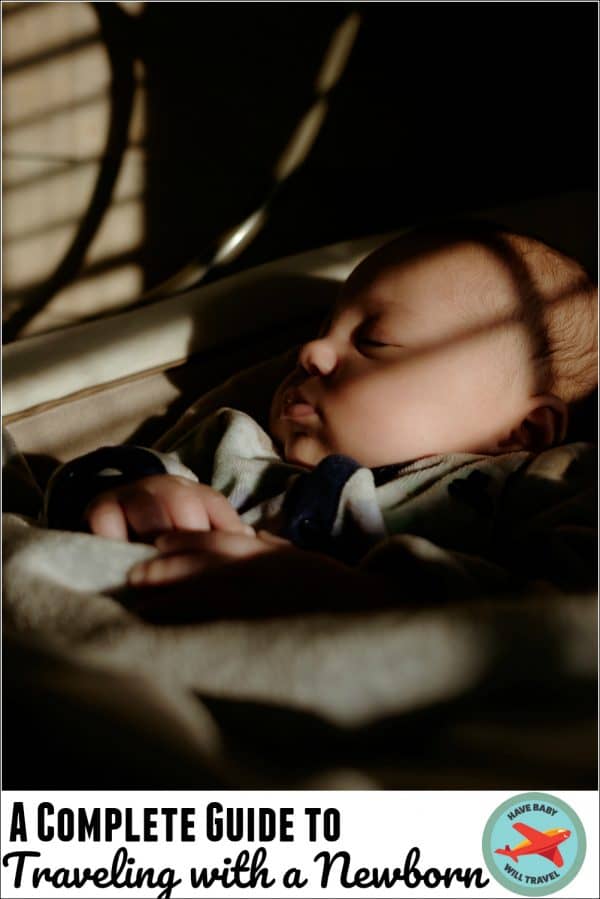
Credit: havebabywilltravel.com
Building A Strong Relationship Between Grandparents And The Newborn
Building a strong relationship between grandparents and the newborn is important, but it’s crucial to consider when grandparents should visit the new baby. It is recommended to wait two to three months until the baby’s immune system is stronger before planning visits with extended family and friends.
Encouraging Bonding Activities
One of the most effective ways to foster a strong relationship between grandparents and the newborn is by encouraging bonding activities. By engaging in activities together, grandparents can create lasting memories and establish a strong foundation of love and trust. Some bonding activities may include:
- Taking regular walks or strolls in the park, allowing the newborn to experience nature and fresh air while creating an opportunity for grandparents to bond with the baby.
- Reading books or telling stories to the baby, which not only promotes language development but also allows grandparents to share their favorite childhood stories.
- Playing gentle music and singing lullabies to soothe the baby and create a calming environment.
- Engaging in sensory play such as finger painting or playing with soft toys, stimulating the baby’s senses and fostering a sense of exploration and curiosity.
- Participating in baby massage sessions, which not only helps in relaxation but also provides an excellent opportunity for grandparents to connect with the baby through touch.
Assisting With Childcare
Another way grandparents can build a strong relationship with the newborn is by assisting with childcare. By sharing caregiving responsibilities, grandparents can play an active role in the baby’s daily routine and establish a sense of trust and dependability. Some ways grandparents can assist with childcare include:
- Helping with diaper changes, feeding, and burping, which not only lightens the parents’ load but also allows them to witness firsthand the baby’s growth and development.
- Rocking the baby to sleep or taking turns during nighttime wake-ups, fostering a bond of comfort and security between the baby and the grandparents.
- Providing developmental stimulation by engaging in age-appropriate play and interacting with the baby in a loving and nurturing manner.
- Offering support during doctor’s appointments or taking the baby for regular check-ups, demonstrating their involvement in the baby’s overall well-being.
- Creating a schedule for regular visits or helping with occasional babysitting, providing parents with some much-needed alone time while allowing grandparents to form a strong bond with the baby.
Sharing Family Traditions And Stories
One of the most beautiful ways to build a strong relationship between grandparents and the newborn is by sharing family traditions and stories. By passing down family history and cultural heritage, grandparents can instill a sense of identity and belonging in the baby. Some ways to share family traditions and stories include:
- Gathering as a family for special occasions and holidays, allowing the newborn to experience and witness family rituals and customs.
- Sharing photo albums or scrapbooks that showcase family milestones and memorable moments, connecting the baby to their ancestral roots.
- Telling stories about family members who have passed away, ensuring that their legacy continues to live on.
- Teaching the baby traditional recipes or participating in age-old family traditions, fostering a sense of heritage and creating lasting memories.
- Encouraging the baby to participate in family activities, such as gardening or baking, enabling them to feel a sense of belonging and pride in their family’s traditions.
Nurturing A Supportive And Loving Environment
Lastly, grandparents play a vital role in nurturing a supportive and loving environment for the newborn. By creating a positive and nurturing atmosphere, grandparents can ensure the baby feels safe, secure, and loved. Some ways to nurture a supportive environment include:
- Offering emotional support and a listening ear to the parents, creating a network of love and understanding.
- Providing a safe space for the baby to explore and learn, ensuring their physical and emotional needs are met.
- Showing affection by hugging, cuddling, and showering the baby with love and attention.
- Creating a calm and peaceful environment by practicing gentle voices and minimizing external distractions.
- Encouraging positive and respectful communication within the family, promoting healthy relationships and emotional well-being.
Balancing The Needs Of The Baby And The Parents
Visiting a newborn baby is a delicate balance between the needs of the baby and the parents. It is recommended for grandparents to wait two to three months until the baby’s immune system is stronger before planning their visit.
Recognizing The Importance Of Parental Bonding Time
When a new baby arrives, it is crucial for parents to have ample time to bond with their child. The first few weeks after birth are filled with adjustments, both physically and emotionally. During this period, it is important to recognize the significance of parental bonding time. Parents need space to establish routines, develop a feeding schedule, and adjust to the demands of caring for a newborn. This time allows them to create a nurturing environment that sets the foundation for their child’s growth and development.
Setting Boundaries And Limits On Visit Frequency
While grandparents’ excitement to meet and spend time with a new baby is understandable, it is essential to set boundaries and limits on visit frequency. Having a structured approach to visits ensures that parents have enough time to rest, recover, and focus on the baby’s needs. Establishing visiting hours or specific days can help maintain balance and prevent overwhelming the parents or the baby. It is crucial to communicate these boundaries effectively to grandparents to avoid any misunderstandings or hurt feelings.
Encouraging Open Communication
Open communication is key in maintaining a harmonious relationship between grandparents and new parents. It is essential to encourage grandparents to express their desires for visiting the baby while also respecting the parents’ boundaries. By fostering open dialogue, parents can better understand the expectations and concerns of the grandparents, while grandparents can understand the parents’ need for dedicated bonding time. This open communication sets the stage for compromise and finding common ground that benefits both parties.
Respecting Parental Decisions Regarding The Baby’s Care
When it comes to caring for the new baby, parents are the primary decision-makers. It is imperative for grandparents to respect and support these decisions, as they come from a place of love and concern for the well-being of the child. Whether it’s regarding feeding choices, sleep routines, or general care practices, grandparents should refrain from imposing their own opinions or judgments. Instead, they should offer assistance and guidance when asked, respecting that every family has unique preferences and methods of raising their child.
Frequently Asked Questions Of How Soon Should Grandparents Visit New Baby
How Long Should Grandparents Wait To See Newborn?
Grandparents should wait around two to three months before visiting a newborn to ensure the baby’s immune system is stronger. Limiting the number of visitors during this time is recommended.
When Should I Go To Family Visit After Having A Baby?
After having a baby, it is recommended to wait for two to three months before grandparents visit. This is because babies’ immune systems are still developing, and they are more susceptible to serious infections. It is important to prioritize the baby’s health and limit the number of visitors during this time.
How Old Should A Baby Be Before You Visit?
It is recommended to wait two to three months before visiting a newborn baby to allow their immune system to strengthen.
How Early Is Too Early To Leave A Baby With Grandparents?
Most parents don’t feel comfortable leaving their baby with grandparents until after the first four to nine months. During this time, babies are still adjusting to their daily routine and parents may be working on bonding and breastfeeding. It’s important to establish trust and ensure the baby’s well-being before leaving them with grandparents.
Conclusion
Determining the right timing for grandparents to visit a new baby is a personal decision that should prioritize the wellbeing of the newborn. It is recommended to wait two to three months to allow the baby’s immune system to strengthen before planning visits from extended family and friends.
However, parents should also consider their own comfort levels and the current circumstances, such as the ongoing COVID-19 pandemic. Ultimately, the health and safety of the baby should be the primary concern when deciding when grandparents should visit.
